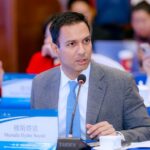ISLAMABAD, Pakistan: The Centre for Social Justice (CSJ) and Working Group for Inclusive Education (WGIE) have raised their concerns after reviewing final core curriculum issued recently for classes 6 to 8 under Single National Curriculum (SNC).
The policy and education experts underlined their concerns in a seminar on the Single National Curriculum held in Islamabad, and joined by educationists, journalists, concerned parents, and civil society.
Leading academic and researcher, Dr. A H Nayyar termed the roll out process of SNC, the madrassization of school curriculum.
Referring to the example of Punjab where Quranic teachings at the college and university level education had been made compulsory Dr. Nayyar remarked that it would not remain confined to learning the principles and practices of the Islamic faith, but would likely delve deeper into sectarian and theological difference. Since learning scripture with translation cannot avoid getting into Tafseer (interpretation), as the Holy Book is among the fundamental sources of Fiqh. Historically, these two disciplines have deeply and irreversibly divided the Muslim Ummat into numerous sects. Even to this day, the centuries-old theological differences are often contested violently among Muslim sects.
Thus, introducing theological studies at higher levels will most likely add religious frictions on educational campuses. These missteps will neither serve education, nation, nor the religion of Islam.
 Dr. Nayyar noted that those who have introduced these new trends in education have, at best, been short-sighted and shallow in thought. They know not what harm they have done.
Dr. Nayyar noted that those who have introduced these new trends in education have, at best, been short-sighted and shallow in thought. They know not what harm they have done.
The experts noted that the curriculum designing has totally disregarded the repeated pleas of avoiding the loading of the curriculum with religious content. This is likely to translate into a narrow worldview of students besides impacting teachers and the overall education system in Pakistan.
While highlighting gaps in the curriculum and violations of the constitution, the director of the CSJ Peter Jacob said that the government of Punjab is turning the schools into seminaries reducing the scope of education in science, mathematics and social science. He reiterated the demand to make Articles 20, 22(1) and 25-A of the Constitution as guiding principles for developing curricula.
Peter Jacob added that minority students must not be forced to study Islamiyat under any pretext, and arrangement must be made to teach minority students their own religion as an alternative to Islamiyat as promised in the Single National Curriculum.
Researcher Zeeba Hashmi analysed the recently approved curricula for classes 6th to 8th against basic learning principles of cognitive abilities, critical and rational thinking, diversity, inclusivity and gender parity. She observed many shortcomings in the curricula, for instance, lack of inclusivity in the History curriculum evident in failures to mention even a single member from minority communities as a national hero, and put emphasis on interfaith harmony. She pointed out the disturbing aspect of the History curriculum included controversial figures as national heroes, known for their sectarian views.
She expressed her disappointment that women’s contribution towards the betterment of our society has received little space and coverage.
Zeeba Hashmi remarked that optically, the English curricula is progressive, however, many crucial topics such as protection of children against abuse get less importance as a sub-theme and will likely be left out by the textbook developers. The religious topics in compulsory subjects are repeated that take away important space that could be used for teaching relevant knowledge concepts of the subject. There is no diversity of religion, ethnicity or gender to be seen in Geography subject. This is concerning because geography cannot be comprehended fully without understanding human demographics and settlement trends. Further, this curricula does not provide enough concepts on global citizenship, regional cooperation, and climate change.
The experts recommended that religious content from compulsory subjects must be removed since it takes away room for critical inquiry and argumentative reasoning (also a violation of Article 22 (1) of the Constitution). The textbook developers, instructors, and reviewers must be given specific guidelines to remain sensitive about content that may be a cause of hate speech towards a nation or group or groups amongst students. That curriculum developers and implementers should be sensitized to Quaid’s famous speech delivered on August 11, 1947. A more rationalist approach to aligning skills and competencies in languages with learning level, and for that the standards should be flexible while keeping in consideration the major crisis of learning poverty of students already in schools, ranging from 85% to 90%.
Suhail bin Aziz, Assistant Educational Advisor at Ministry of Federal Education and Professional Training, Farhatullah Babar, Former senator from Pakistan Peoples party, Amjad Nazir, from IDRAC and Dr. Naazir Mehmood, an educationist also attended the event.




